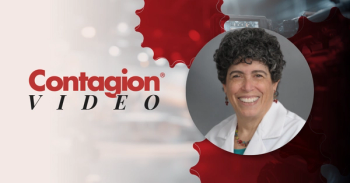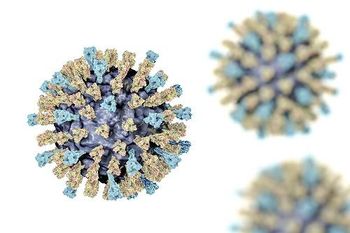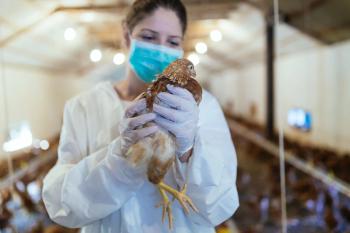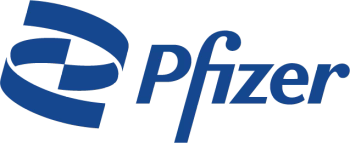
Twitter Is a Powerful Medium for Antimicrobial Stewardship Programs
John Nosta, BA: I think it’s interesting that we both have a relationship with Twitter. It’s such a social tool, yet it has real value to us professionally and personally. I’m going to talk a little about my relationship with Twitter. I’ve been on Twitter now for 7 or 8 years and some of the most famous people in the world follow me. I’m not going to mention their names. Of course, one of them is Debra Goff. I just find it to be an indispensable tool to know what’s going on in the world.
Debra A. Goff, PharmD, FCCP: It’s real time.
John Nosta, BA: Yes, it’s real time.
Debra A. Goff, PharmD, FCCP: Always.
John Nosta, BA: It might be breaking news on a newly published clinical paper. It might be a CDC [Centers for Disease Control and Prevention] report. It might be political news. I find it first on Twitter.
Debra A. Goff, PharmD, FCCP: Oh, I agree. That’s my go-to. Even when things are happening around the world—you and I travel globally—it’s my go-to place. Is there something that I need to be aware of? Is there political instability in a country? Even if I want to do something for fun in the country, I go to Twitter to find it because it’s in real time. Every other vehicle I use in medicine is retrospective. It’s a journal. I wrote this article and it’s a year before it’s actually printed. There’s a lag and it’s a huge lag. In the field of infectious disease and antibiotic stewardship, when there’s an outbreak…Look at Ebola.
John Nosta, BA: Sure, right now. I saw it this morning.
Debra A. Goff, PharmD, FCCP: Yes. So the 2014 Ebola crisis was horrible. You could actually go on Twitter and watch a video of someone, a family member, who lost a loved one to Ebola describe it. You could see these tented hospitals they were putting up. There was no other vehicle, other than Twitter, to actually connect with the people living in that horrid moment. Yes, every news station, although not too close, was reporting. But that’s what they chose to report.
John Nosta, BA: With respect to Twitter, the P value is people.
Debra A. Goff, PharmD, FCCP: Yes.
John Nosta, BA: It’s antidotal. But it’s the power of that antidotal video or that person. Also, the interesting thing for me is that on Twitter you can follow key people who you’ve already built a level of trust with. So when you tweet something, or see that [C.] Michael Gibson [,MD,]—who’s got 300,000 followers—tweet something, it has a certain authority built right into it.
Debra A. Goff, PharmD, FCCP: Right. As a health care provider, everybody that I teach had to get on Twitter. You’re held to a higher standard because you are a healthcare provider. You must always tweet responsibly. And remember, your word is your integrity. People are going to hold you accountable. So if you have political beliefs or you feel rage about some topic going on in the world, it’s probably not the best way to talk about it.
John Nosta, BA: Have you ever deleted a tweet before you posted it?
Debra A. Goff, PharmD, FCCP: No, I really think through what I’m going to say before I say it, and I am not on Twitter for all of those other reasons described. I am on there as a health care provider. Very rarely will you see me tweet outside of infectious diseases.
John Nosta, BA: Yes, I think I’m more inflammatory. That’s kind of our personal brand.
Debra A. Goff, PharmD, FCCP: There’s no filter on Twitter. What I love, as a global antibiotic steward, is that there are no borders. Infectious disease has no borders. Antibiotic resistance travels globally. There is no other vehicle, other than Twitter, to tell me in real time that this New Delhi metallo-beta-lactamase just appeared in my New York hospital. You’re not disclosing anything that’s a HIPPA [Health Insurance Portability and Accountability Act] violation. A health care provider can tweet about it and I can say, “Oh my gosh, it’s now in the United States.”
John Nosta, BA: You said something very interesting. We’re all concerned about HIPPA and confidentiality. In the antimicrobial world, bugs are not protected by HIPPA, right?
Debra A. Goff, PharmD, FCCP: Correct.
John Nosta, BA: That’s really fascinating.
Debra A. Goff, PharmD, FCCP: Yes, and it empowers me in real time. My best example is with surgeons. I can share that story a bit later—how the power of a tweet really provided real-time education.
John Nosta, BA: I want to get back to some of those key insights about Twitter. We both have insights that I think once you hear are almost transformative. We’ll get to that in a minute. When I first went on Twitter, it was a bit of a social experiment for me. I was working for a large advertising agency and I saw this thing called “social media.” I jumped on and started playing around. I kind of stumbled through it, following interesting people. And then I started tweeting some things. But to me, it’s not only about talking, but listening. How did you get involved? I was so afraid to start.
Debra A. Goff, PharmD, FCCP: Right. I was there too. It’s kind of a fascinating story. Again, I’ve worked very closely with surgeons. Dr Chris Ellison [,MD,] was head of surgery at Ohio State University, where I work. He actually just retired. He had a wonderful career. Several years ago, I said, “Chris, I can’t give any more lectures on antibiotic resistance.” Quite honestly, we all know if you lecture it goes in one ear and out the other. In the moment when the surgeon’s trying to prescribe an antibiotic, they don’t remember what I said a week ago. But I said, “How can I reach them in a more real-time way? I’m looking for a vehicle.” He goes, “Oh, Debbie, you need to jump on Twitter.” I was like, “Twitter?” And he goes, “No, seriously.”
John Nosta, BA: How long ago was this?
Debra A. Goff, PharmD, FCCP: I think this was back in 2013. I’m going to quote him. This is not me. He goes, “Oh, most of us have ADHD [attention-deficit/hyperactivity disorder]. We don’t have time to read all of those articles. We like sound bites. Twitter’s the perfect [medium].” I was like, “Really?” And so, he connected me with someone who I call the king of surgery on Twitter—Dr Ben Nwomeh, [MD,] a pediatric surgeon. I never knew him. We’re a huge university and I don’t know every person working in our facility. So I meet this younger surgeon and he says, “You need to be on Twitter.” I actually still didn’t really get it. I’m like, “Well, if I have no followers, where does my tweet go? Who hears anything?” My son was in college and I knew he was on Twitter. I called him and of course he was mortified.
John Nosta, BA: Mom on Twitter.
Debra A. Goff, PharmD, FCCP: He was mortified. He was like, “Oh my gosh, why would [you] be on that?” So I got no help from him. So I turned to a PharmD student who started our college of pharmacy Twitter feed. That young man sat down and tutored me. I’ll never forget this. Here we are, many years later. I said, “OK, Blake, who should I follow?” He said to look for infectious disease experts. “Let me show you how to use a hashtag to search on Twitter.” So that was new to me. I searched and found some key people.
But he goes, “Well, you want to follow others who are not in your immediate circle because that’s the power of this. You can learn from other people.” And he goes, “So you want to follow people in healthcare who are really entrepreneurs and are out-of-the-box thinkers. The No. 1 person you need to follow is John Nosta.” And I go, “Oh, I don’t know him.” So, John, you were actually one [of] the first people I followed outside of my immediate circle, and here we are. This is the power of Twitter. We’re here together.
John Nosta, BA: We’re fast friends. We talk. We call. We tweet. We share information. This is really a powerful dynamic. Well, thank you for following me.
Debra A. Goff, PharmD, FCCP: Yes, and I learned so much. So here is a gentleman who I never even knew. And then I started reading his tweets and links and I’m like, “My gosh, he’s on Forbes.” Right away you build this bond. I realized, “This person has really valuable knowledge, and it’s very different knowledge from what I’m used to learning.” I’m used to learning from reading journals. It’s medical information. To really be a great steward, as I said, you’ve got to learn more than just infectious disease and matching an antibiotic with an organism. It’s way beyond that. It’s the social aspect of connecting with people to convince them that they need to change what they’re doing. So there are all of these other skills that you really have to have to be a great steward. Following your Twitter feed empowered me to learn a different type of knowledge that really helped me to become a better clinician.
John Nosta, BA: So pardon the pun, but I guess we can say that Twitter can be infectious when it comes to learning?
Debra A. Goff, PharmD, FCCP: That is true.
Newsletter
Stay ahead of emerging infectious disease threats with expert insights and breaking research. Subscribe now to get updates delivered straight to your inbox.

































































































































